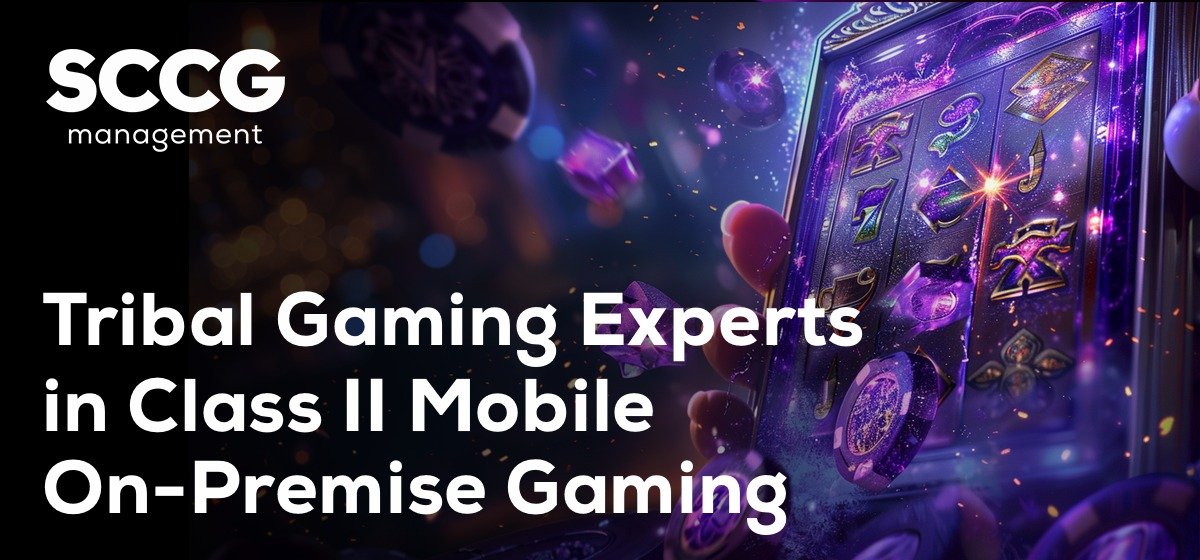
At SCCG Management, our strength lies in the relationships we build and our proven track record of success in working with tribes to fully set up iGaming operations. Our deep understanding of the industry and comprehensive advisory services make us the ideal partner for anyone needing guidance on Class II Mobile on Premise Gaming. Here’s how we can help:
UNDERSTANDING CLASS II MOBILE ON PREMISE GAMING
Class II gaming, as defined by the Indian Gaming Regulatory Act (IGRA), encompasses games like bingo and certain non-banked card games. These games are distinct from Class III gaming, which includes traditional casino-style gambling. The advancements in gaming technology have sometimes blurred the lines between Class II and Class III gaming, making it challenging for players to differentiate between the two during play.
Class II gaming holds a unique position in the tribal gaming ecosystem. Unlike Class III gaming, Class II gaming does not require state compacts and is not restricted by machine count. This classification grants tribal entities considerable autonomy, allowing them to expand their gaming operations without the stringent caps and regulations typically associated with Class III agreements.
COMPREHENSIVE ADVISORY SERVICES FOR CLASS II MOBILE ON-PREMISE GAMING: WE SUPPORT:
- Tribal Casinos
- Class II Platform Providers
- Class II iGaming Content Providers
- Vendor Selection
- iGaming Technology Partners
AREAS OF EXPERTISE:
- Authentication Process
- Authorized Mobile Games
- Class II Mobile Devices (C2MD)
- Class II Mobile Gaming Areas (C2MGA)
- Class II Mobile Gaming Systems
- Communication Technology
- Mobile Wagering Accounts
- System Security and Monitoring
- Geolocation and Access Control
- Software and Hardware Integrity
- Logging and Reporting
TECHNOLOGICAL INNOVATIONS AND STRATEGIC ALLIANCES
Mobile On-Premise Solutions
- Guests at tribal casinos can now engage in gaming directly from their mobile devices.
- Tribal entities, such as the Chickasaw Nation’s WinStar World Casino and Resort in Oklahoma, are key examples of first-movers in the space.
Popular Class II Titles
- Mobile platforms now offer popular Class II titles like ‘Mr. Money Bags’ and ‘Polar High Roller.’
- This shift creates more dynamic and immersive gaming environments.
Regulatory Approvals
- Recent approvals from the National Indian Gaming Commission (NIGC) support modernization in mobile tribal gaming.
- Alternate technical standards have been embraced to facilitate mobile integration and capabilities.
LEGAL LANDSCAPES AND TRIBAL SOVEREIGNTY
Supreme Court Ruling
- The late 1980s Supreme Court ruling in favor of the Cabazon Band of Mission Indians was pivotal.
- This decision established that states could not obstruct tribal gaming operations under civil regulatory laws if such gambling was not criminally prohibited.
Indian Gaming Regulatory Act (IGRA)
- Enacted following the Supreme Court ruling, the IGRA reinforced tribal sovereignty in gaming operations.
- The IGRA has been instrumental in the growth of the tribal gaming sector.
THE SEMINOLE TRIBE AND BROADER IMPLICATIONS
Class III Gaming Compacts
- The Seminole Tribe of Florida has led developments in Class III gaming compacts and sports betting.
- On June 30, 2023, the U.S. Court of Appeals for the District of Columbia Circuit permitted the Seminole Tribe to accept online/mobile sports bets under their “Hard Rock” brand.
Class II Gaming Expansion
- Tribal entities are enhancing Class II offerings and navigating the complexities of Class III gaming.
- Sovereign rights are leveraged to expand gaming operations without the stringent regulations of Class III agreements.
Innovative Applications
- Mobile on-premise betting and Class II gaming enable significant autonomy for tribal entities.
- These innovations allow for the expansion of gaming operations while maintaining regulatory compliance.
Our Services







